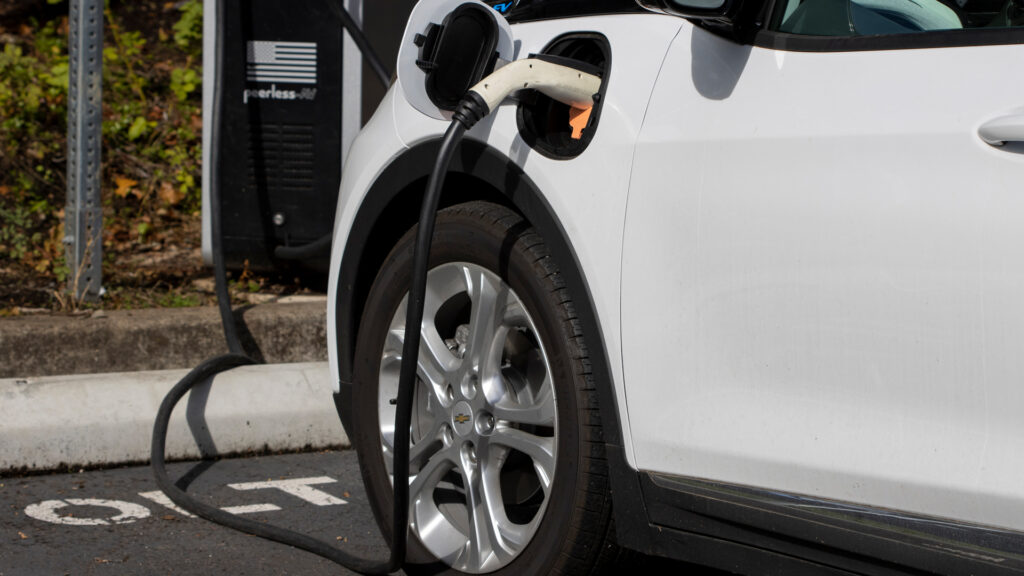By Dawn Shirreffs, Environmental Defense Fund
Floridians are confronted with some of the most severe climate-related issues across the country. These issues range from rising sea levels and recent events of severe flooding in Broward to the escalating and unstable cost of natural gas that has hit Floridians’ pocketbooks statewide. Addressing these challenges requires considerable time and investment, but Florida took some important steps in the right direction during the 2023 legislative session.

Florida is going electric. Residents and businesses are already taking advantage of the cost savings of electric vehicles, which now make up nearly 7% of Florida vehicles on the road. Thanks to the passage of SB 284/HB 1025, proposed by Sen. Jason Brodeur and Rep. Mike Caruso, taxpayers will save up to $8.7 billion by modernizing state agency fleet procurement criteria to prioritize vehicles with the lowest cost over the life of ownership. This will generate cost savings for taxpayers by reducing maintenance and fuel costs by leveraging electric vehicles, a win-win.
Another bill, SB 1070, would have established one of the highest taxes in the U.S. for electric vehicle owners. While electric vehicle owners need to pay their fair share, this bill would have taxed electric vehicle owners nearly double what gas-powered car owners pay in annual gas taxes. In addition, the bill failed to fund a clear plan for charging infrastructure to ensure Floridians can safely evacuate during a hurricane.

The Legislature also took important steps regarding resiliency, through funding significant work and expanding opportunities for nature-based solutions, which Hurricane Ian demonstrated are far more effective in addressing sea-level rise. House Bill 111/SB 1170 will expand resources for the Resilient Florida Grant Program to help local governments cover the expenses of permitting and feasibility studies for nature-based solutions, like mangroves, to tackle the issue of rising sea levels. In addition, a new revolving loan fund was set up to give Florida access to federal funds for hazard mitigation and resilience projects. Together, these measures lower the risks posed by sea-level rise and storm surge while also preserving the environment and the natural beauty of Florida.

This project is significant and important, but there is still more work to be done. Florida’s families and businesses are struggling under the volatile natural gas prices, with some seeing increases of up to 25%. Regulators again failed to set standards on energy efficiency, ensuring Florida residents will continue to pay electric bills significantly above the national average. Approximately 75% of voters polled last year were concerned that utilities depended too much on fossil fuels, and why an overwhelming majority of 76% want policymakers to create an energy independence plan for the state. We need to take steps towards these goals, and we need to continue to expand programs that incentivize Floridians to take their own steps in reducing their personal energy footprint.
As Florida continues to be a beacon for growth, these energy and resiliency challenges are only going to increase. Leaders and citizens must prioritize intentional investment in diversified energy sources, prioritize nature-based solutions where we can make environmentally and economically smart choices regarding electric vehicles and fleets, and ultimately remain focused on the Florida we want to leave for our children and grandchildren.
Dawn Shirreffs is the Florida director of the Environmental Defense Fund. This opinion piece was originally published by the Orlando Sentinel, which is a media partner of The Invading Sea.




Dawn, what do you think about H 637/S 715 that also passed the Legislature. I believe this bill will make it more difficult and more expensive to buy EVs in Florida. This bill comes from the dealers and is all about discouraging EV purchases. Read the bill analysis and you will see what I mean. It has not yet been presented to the Governor. Still time to write a letter and ask the Governor to veto.